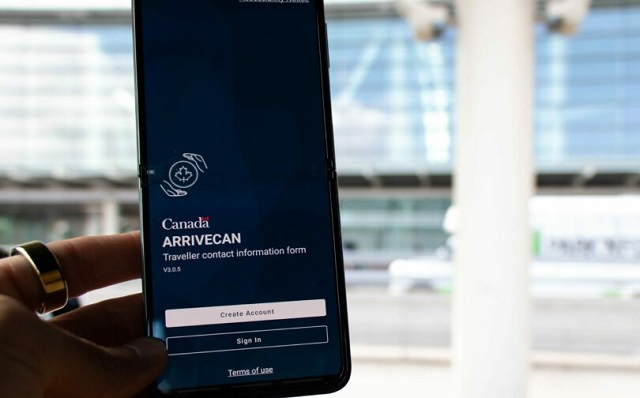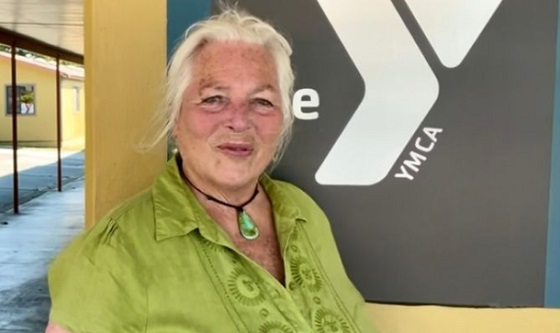COVID-19
Tech entrepreneurs allege corruption, misuse of taxpayer funds in development of Canadian travel app

From LifeSiteNews
One of the experts who testified before the Standing Committee on Government Operations and Estimates recently exposed shady subcontracting deals that were not transparent during ArriveCan’s development
Two tech entrepreneurs recently testified before a government committee that during the development of the federal government’s much-maligned ArriveCAN travel app they saw firsthand how federal managers engaged in “extortion,” corruption, and “ghost contracting,” all at the expense of the taxpayer.
During a Standing Committee on Government Operations and Estimates (OGGO) meeting on October 26, Amir Morv, the co-founder of software company Botler AI, told Canadian MPs on the committee that “acts of misconduct rarely happen in isolation.”
“It is almost always symptomatic of a larger existence and tolerance of misconduct,” he said.
“Individuals engaged in such conduct are also prime targets of exploitation and extortion,” he said.
Botler, which is a Quebec-based company, was a subcontractor for the Canada Border Service Agency (CBSA) and recently exposed shady subcontracting deals that were not transparent during ArriveCan’s development.
According to a Globe and Mail report, the CBSA gave three companies involved in making the app more than $17 million.
Currently, the OGGO is investigating how various companies such as Dalian, Coaradix, and GC Strategies received millions of taxpayer money to develop the contentious ArriveCAN app.
ArriveCAN was introduced in April 2020 by the Liberal government of Prime Minister Justin Trudeau and made mandatory in November 2020. The app was used by the federal government to track COVID jab status.
When the app was mandated, all travelers entering Canada had to use it to submit their travel and contact information as well as any COVID vaccination details before crossing the border or boarding a flight.
Canada Auditor General Karen Hogan announced an investigation of the ArriveCan app last November after the House of Commons voted 173-149 for a full audit of the controversial app.
The program was once described by a Canadian border agent as “tyranny.” It cost taxpayers a whopping $54 million, which MPs pointed out was a suspiciously high expense.
LifeSiteNews reported earlier this month that the federal government was exposed for hiding a Royal Canadian Mounted Police (RCMP) investigation into the ArriveCan app from auditors.
Companies ‘openly’ engaged in various criminal activities
Morv and Botler co-founder Ritika Dutt testified to the committee about private conversations they had with a managing partner of GC Strategies Kristian Firth, a company with only two employees.
CSBA Director General Cameron MacDonald had urged the two to work directly with GC Strategies. However, the two quickly discovered that all of their work was being run through another company, called Dalian, but they were not told this.
Morv told MPs that the contractors are “openly engaged in various criminal activities” and that they openly “commit fraud on the government by promising influence and requesting material benefit” in return.
In essence, Morv exposed how private companies were being used to funnel taxpayer money into their coffers without public oversight.
Morv also claimed that Firth had regularly boasted that he and his friends, who were senior government officials with contracting authority, said they had “dirt” on each other, which was used as a sort of guaranteed mutual silence tactic regarding the corruption.
Notably, Morv stated that the contractors would not have acted in the way they did if they did not have “backing from factions within the government.”
He then said that part of the federal government had “mobilized to bury Botler’s reports and protect this corruption” after it had sent two reports to the CBSA.
As for Dutt, she told MPs that in December 2022 her emails were hacked and “every record of an email that Kristian Firth sent me was mysteriously deleted.”
She said that this came at the same time CBSA president Erin O’Gorman had said she was going to consider whether to send the reports to the RCMP.
Dutt said that they “watched and waited patiently for someone to do the right thing,” to “act on our reports.”
“But instead, we were heartbroken as they lied. They lied to us. They lied to you at OGGO, they lied to Parliament, and they lied to Canadian taxpayers,” she added.
So-called ‘ghost contracting’ exposed
Morv was asked by Conservative Party of Canada (CPC) MP Stephanie Kusie to describe what so-called “ghost contracting” was when it concerned the development of the ArriveCAN app.
According to Morv, ghost contracting could have been how GC Strategies, a company with only two employees, ended up with $11.2 to help develop the travel app.
In essence, “ghost contracting” is a middleman added to the mix but does not have any sort of legal trace back to the government. The companies do no work, but they make a “significant amount of commission,” Morv said.
Morv said that he is not sure Dalion or Coradix, who received a combined $4.3 million to help develop the app, fit the “ghost contracting” definition; they had hired ghost contractors to do the actual work.
CPC MP Garnett Genuis said that the whole evolving ArriveCAN scandal showed a “horrific system of government corruption” that went beyond the travel app.
He told Morv, “You’re describing a system in which government contracts go to preferred contractors, they claim to subcontract to others, who they claim do the work and they provide reports on this.”
He added, “But those subcontractors might not be doing the work. They might not know they’re being named. They might not even exist in some cases. And then this system allows those initial contractors to overbill taxpayers. Is what’s going on here?”
Morv said, “In this case, the system encouraged the contractors to actually do this. That is correct.”
When the Trudeau government introduced the ArriveCAN app, they made sure of quick compliance by saying at the time, “If you don’t submit your travel information and proof of vaccination using ArriveCAN, you could be fined $5,000.”
Top constitutional lawyers have said ArriveCAN violates an individual’s constitutional rights and that people’s civil liberties on paper have been rendered “meaningless effectively in the real world” because of COVID.
Eventually, in the fall of 2021, the Trudeau government banned the vaccine free from traveling by air, rail, or sea both domestically and internationally.
This policy resulted in thousands losing their jobs or being placed on leave for non-compliance.
Trudeau “suspended” the COVID travel vaccine mandates on June 20, 2022. Last October, the Canadian federal government ended all remaining COVID mandates regarding travel, including masking on planes and trains, COVID testing, and allowing vaccine-free Canadians to no longer be subject to mandatory quarantine.
More than 700 vaccine-free Canadians negatively affected by federal COVID jab dictates have banded together to file a multimillion-dollar class-action lawsuit against Trudeau’s federal government.
COVID-19
Court compels RCMP and TD Bank to hand over records related to freezing of peaceful protestor’s bank accounts

The Justice Centre for Constitutional Freedoms announces that a judge of the Ontario Court of Justice has ordered the RCMP and TD Bank to produce records relating to the freezing of Mr. Evan Blackman’s bank accounts during the 2022 Freedom Convoy protest.
Mr. Blackman was arrested in downtown Ottawa on February 18, 2022, during the federal government’s unprecedented use of the Emergencies Act. He was charged with mischief and obstruction, but he was acquitted of these charges at trial in October 2023.
However, the Crown appealed Mr. Blackman’s acquittal in 2024, and a new trial is scheduled to begin on August 14, 2025.
Mr. Blackman is seeking the records concerning the freezing of his bank accounts to support an application under the Charter at his upcoming retrial.
His lawyers plan to argue that the freezing of his bank accounts was a serious violation of his rights, and are asking the court to stay the case accordingly.
“The freezing of Mr. Blackman’s bank accounts was an extreme overreach on the part of the police and the federal government,” says constitutional lawyer Chris Fleury.
“These records will hopefully reveal exactly how and why Mr. Blackman’s accounts were frozen,” he says.
Mr. Blackman agreed, saying, “I’m delighted that we will finally get records that may reveal why my bank accounts were frozen.”
This ruling marks a significant step in what is believed to be the first criminal case in Canada involving a proposed Charter application based on the freezing of personal bank accounts under the Emergencies Act.
Alberta
COVID mandates protester in Canada released on bail after over 2 years in jail

Chris Carbert (right) and Anthony Olienick, two of the Coutts Four were jailed for over two years for mischief and unlawful possession of a firearm for a dangerous purpose.
From LifeSiteNews
The “Coutts Four” were painted as dangerous terrorists and their arrest was used as justification for the invocation of the Emergencies Act by the Trudeau government, which allowed it to use draconian measures to end both the Coutts blockade and the much larger Freedom Convoy
COVID protestor Chris Carbert has been granted bail pending his appeal after spending over two years in prison.
On June 30, Alberta Court of Appeal Justice Jo-Anne Strekaf ordered the release of Chris Carbert pending his appeal of charges of mischief and weapons offenses stemming from the Coutts border blockade, which protested COVID mandates in 2022.
“[Carbert] has demonstrated that there is no substantial likelihood that he will commit a criminal offence or interfere with the administration of justice if released from detention pending the hearing of his appeals,” Strekaf ruled.
“If the applicant and the Crown are able to agree upon a release plan and draft order to propose to the court, that is to be submitted by July 14,” she continued.
Carbert’s appeal is expected to be heard in September. So far, Carbert has spent over two years in prison, when he was charged with conspiracy to commit murder during the protest in Coutts, which ran parallel to but was not officially affiliated with the Freedom Convoy taking place in Ottawa.
Later, he was acquitted of the conspiracy to commit murder charge but still found guilty of the lesser charges of unlawful possession of a firearm for a dangerous purpose and mischief over $5,000.
In September 2024, Chris Carbert was sentenced to six and a half years for his role in the protest. However, he is not expected to serve his full sentence, as he was issued four years of credit for time already served. Carbert is also prohibited from owning firearms for life and required to provide a DNA sample.
Carbert was arrested alongside Anthony Olienick, Christopher Lysak and Jerry Morin, with the latter two pleading guilty to lesser charges to avoid trial. At the time, the “Coutts Four” were painted as dangerous terrorists and their arrest was used as justification for the invocation of the Emergencies Act by the Trudeau government, which allowed it to use draconian measures to end both the Coutts blockade and the much larger Freedom Convoy occurring thousands of kilometers away in Ottawa.
Under the Emergency Act (EA), the Liberal government froze the bank accounts of Canadians who donated to the Freedom Convoy. Trudeau revoked the EA on February 23 after the protesters had been cleared out. At the time, seven of Canada’s 10 provinces opposed Trudeau’s use of the EA.
Since then, Federal Court Justice Richard Mosley ruled that Trudeau was “not justified” in invoking the Emergencies Act, a decision that the federal government is appealing.
-

 International2 days ago
International2 days agoWoman wins settlement after YMCA banned her for complaining about man in girls’ locker room
-

 Banks2 days ago
Banks2 days agoWelcome Back, Wells Fargo!
-

 Alberta1 day ago
Alberta1 day agoAlberta government records $8.3 billion surplus—but the good times may soon end
-

 MxM News1 day ago
MxM News1 day agoDiddy found not guilty of trafficking, faces prison on lesser charge
-

 Bruce Dowbiggin1 day ago
Bruce Dowbiggin1 day agoCanada Day 2025: It’s Time For Boomers To Let The Kids Lead
-

 Also Interesting1 day ago
Also Interesting1 day agoEndorphina Slots: High-Quality Games Now at Zoome Casino Canada
-

 Business1 day ago
Business1 day agoPrairie provinces and Newfoundland and Labrador see largest increases in size of government
-

 Canadian Energy Centre1 day ago
Canadian Energy Centre1 day agoAlberta oil sands legacy tailings down 40 per cent since 2015






